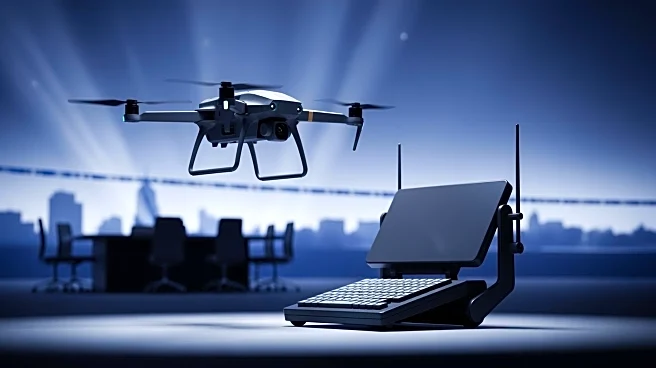What's Happening?
The defense contracting industry is experiencing a shift towards increased competition and innovation, driven by the rise of dual-use technologies and new market entrants. Companies like Palantir and Anduril are securing major contracts, emphasizing software-based
innovations such as artificial intelligence and autonomy. This shift is facilitated by the Department of Defense's (DoD) encouragement of intellectual property (IP) ownership, allowing contractors to retain patent rights under the Bayh-Dole Act. Patents are becoming crucial for securing favorable contracts, as they provide a basis for sole-source awards and enable companies to license technology to other contractors. The DoD's focus on dual-use technology, which serves both defense and commercial markets, is further supported by increased investment from venture capital firms.
Why It's Important?
The evolving landscape of defense contracting has significant implications for U.S. industries and national security. By encouraging IP ownership, the DoD aims to foster innovation and maintain a competitive edge in defense technology. Patents not only secure revenue streams for contractors but also facilitate international collaboration by exempting published patent applications from export regulations like ITAR and EAR. This exemption allows for lawful cross-border collaboration without the need for export licenses, reducing compliance costs and potential fines. The emphasis on dual-use technology also opens new markets and revenue streams for defense contractors, enhancing their financial stability and attractiveness to investors.
What's Next?
As the defense industry continues to evolve, contractors are likely to focus on building robust IP portfolios to secure competitive advantages. The DoD may further refine its policies to balance IP rights with the need to avoid vendor-lock and maintain competitive bidding. Additionally, the trend towards dual-use technology is expected to grow, with more startups entering the market and increasing investment from private sectors. Contractors will need to navigate the complexities of patent and trade secret protection to maximize their innovation's value while complying with DoD regulations.
Beyond the Headlines
The shift towards dual-use technology and increased IP ownership raises ethical and legal considerations. Contractors must carefully manage the balance between patent protection and trade secret confidentiality, especially when dealing with sensitive defense technologies. The DoD's encouragement of IP ownership also highlights the importance of maintaining a competitive landscape while ensuring national security. As the industry adapts to these changes, the role of IP in defense contracting will continue to evolve, potentially influencing broader policy decisions and international collaborations.















